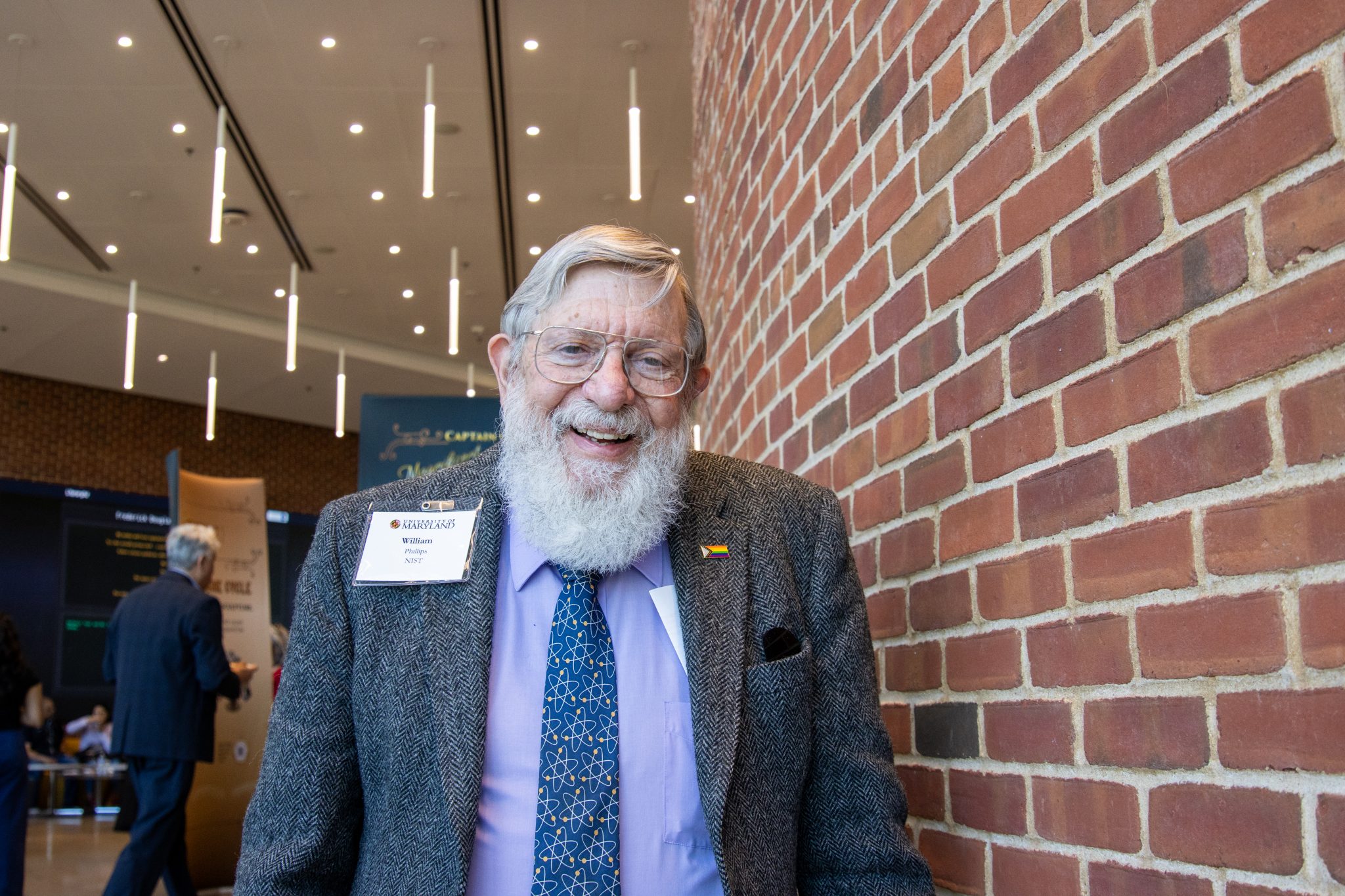The University of Maryland hosted a World Quantum Day celebration on Monday to promote quantum research at this university.
The university hosted the “Quantum for All: Bridging Science and the Arts in the International Year of Quantum” event at the Iribe Center. The celebration featured quantum technology demonstrations, an interview with a physics Nobel Laureate and a look at this university’s quantum and arts project collaboration.
World Quantum Day is an annual celebration that promotes public awareness of quantum science and technology around the world, according to the celebration’s website. Quantum involves multiple disciplines to help technology be more efficient, such as using quantum computing to execute tasks faster than supercomputers, according to this university’s quantum website.
William Phillips, the 1997 co-recipient of the Nobel Prize of Physics and distinguished physics professor, was the event’s featured speaker. Williams spoke about the history of quantum mechanics and the importance of quantum in daily life.
[Maryland Gov. Wes Moore, UMD announce $1 billion quantum technology initiative]
“We can’t explain anything without quantum mechanics,” Phillips told event attendees. “So quantum mechanics is everywhere, and part of our lives, part of everything that we experience.”
Yanne Chembo, an electrical and computer engineering professor and director of this university’s research in electronics and applied physics institute, told the audience about the International Year of Quantum, the United Nations’ campaign to educate people on quantum science and technology.
Chembo was part of the delegation that brought the International Year of Quantum proposal to the United Nations. Anyone can design and organize events to promote the yearlong initiative, Chembo said.
“The International Year of Quantum is not just a year for those who do quantum science and technology,” Chembo said. “It’s something that is organic, it’s for everyone.”
The state and this university have announced multiple initiatives to advance the quantum industry.
Maryland Gov. Wes Moore and this university announced in January the “Capital of Quantum” initiative, which will generate $1 billion investments in quantum over the next five years.
Moore’s budget for the next fiscal year includes $27.5 million for the initiative, which will position the state as a quantum epicenter, according to a news release from Moore’s office.
This university launched the National Quantum Laboratory in 2023 in partnership with IonQ, a quantum computer company based in College Park.
Steven Rolston, the chair of this university’s physics department, told the audience that this university seemed like a “natural place” to work on quantum research with IonQ.
[$1 billion ‘Capital of Quantum’ initiative to establish UMD, Maryland as quantum hub]
“The real end goal is that we become the national place to go explore quantum computing applications,” Rolston said.
The event ended with Craig Kier, director of this university’s Arts for All initiative, presenting a “Quantum Choreographies” project that explores how humans dancing can serve as a visual metaphor to communicate quantum computing principles.
This university’s research division and Arts for All initiative funded projects that bring people in the quantum world together with artists, according to Kier, a music professor.
Kier said quantum is complicated for him to understand as an opera conductor, but it feels like an art form. Through workshopping “Quantum Choreographies,” students who knew nothing about quantum began to understand concepts and use vocabulary they had never heard of before.
“Pretty extraordinary things can happen when you put artists with other disciplines,” Kier said. “It sparks dialogue. It’s a fantastic educational tool.”



